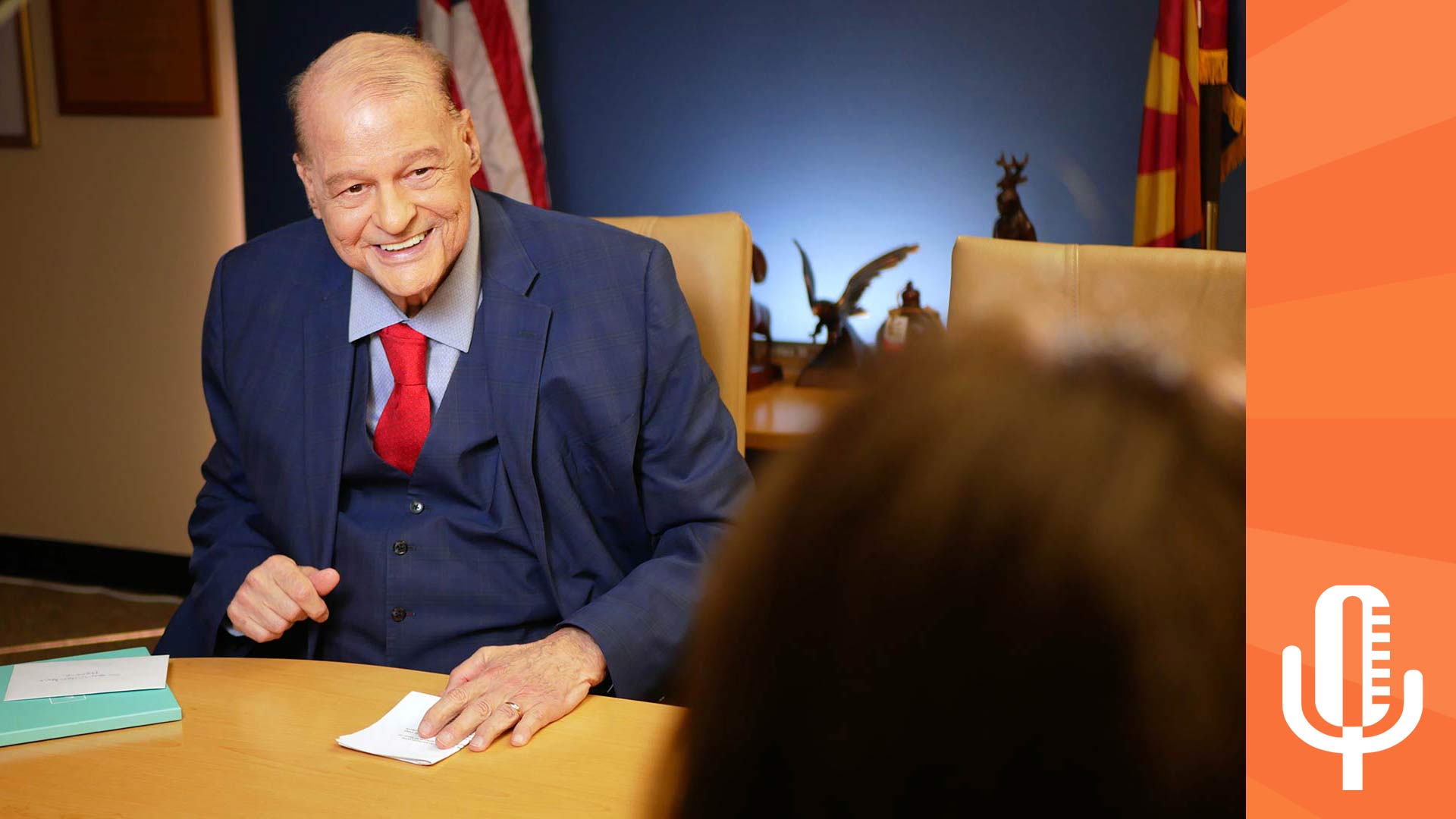 Arizona Superintendent of Public Instruction Tom Horne presented his 2025 State of Education Speech to the AZ Senate Committee on Education on Tuesday, Jan. 21, 2025.
Arizona Superintendent of Public Instruction Tom Horne presented his 2025 State of Education Speech to the AZ Senate Committee on Education on Tuesday, Jan. 21, 2025.
The Buzz for February 14, 2025

The topic of K-12 education has been a major issue for Arizonans for years. Despite recent increases, the state remains near the bottom for per-pupil funding, and teachers routinely talk about having to have second jobs or side hustles to get by.
The state has increased spending on schools since the Red For Ed movement began nearly a decade ago, but test scores have been flat or going down since the COVID-19 pandemic. Add to that concerns about social issues ranging from student pronoun use to school safety.
To get an update on many of these issues, The Buzz spoke with Superintendent of Public Instruction Tom Horne. Horne is midway through his third term in the position, with the first two coming in the 2000s.
Horne was in Tucson last week to honor Tucson Police Officer William Bonanno, who arrested an armed man who was making threats of violence at a local charter school.
"[Bonanno] was only there for two weeks when this happened. So there are a lot of points along that chain of events where we could have missed and the kids could have been killed and the adults could have been killed. And I think it illustrates the importance of having police officers in the schools. Some people say, 'we want to have gun free schools.' Saying you are a gun free schools is like saying, 'I'm an easy victim, come get me,'" said Horne.
He said recent issues with federal funding have not affected local schools, and he would be happy to see the U.S. Department of Education shuttered, noting that funding would still flow from Congress to schools.
"So Title I, special education, other federal programs, a federal safety program. Those have been funded by Congress. So if they close the federal Department of Education, the money will still be available, but we in the state will need to administer it, and we'll do a much better job, and there'll be extra money to pay our teachers more."
On another topic involving the federal government, Horne said he does not want Immigration and Customs Enforcement officers entering schools without warrants, but he does not think that will be an issue.
"I don't want parents keeping their kids home out of fear of what would happen to school. So what I have said in a number of interviews is this, the acting head of Homeland Security, when he talked about going to schools, he said he would go to schools if there are criminals hiding there to find them. He didn't say we're going in there to harass students. There's no reason to harass students. They're starting out going after criminals. The criminals are adults, even if they go after people who are not criminals but are here illegally, they're going to go after the adults, not the kids."
Horne said his administration is committed to improving test scores, particularly in failing schools. The most recent National Report Card showed Arizona's test scores either held steady or declined in math and reading.
"We are there to help the schools primarily. We have to do monitoring. That's part of our job, but primarily, we're there to help the schools. And so I started 15 initiatives to help the schools do better academically. And just give you an example or two, we sent out improvement teams, very good teachers and principals, to help schools do better that need it. One of their projects dealt with the bottom 5% of the schools, about 90-some schools. After we worked with them for two years, 70% of them were no longer in the bottom 5%. We worked with a particular school to show a high poverty school that high poverty is not an excuse, if you teach them properly, kids can learn regardless of their economics."
For students not in public schools, Horne said auditing of Empowerment Spending Accounts, also known as school vouchers, fell behind not entirely because of the bulk of requests that came from the system after it opened up to all Arizona children. He blames a change in the law that allowed parents to request the money directly rather than going through the state's third-party vendor, Class Wallet.
"Certain things happened that greatly increased the burden of reimbursements, including the legislature passing a law that said that parents with kids in private schools, before they had to go through Class Wallet, they could go through reimbursements. A lot of parents did that because it saved a fee. That was a big mistake. [The legislature] didn't check with us. I've asked them in the future, please, let us tell you the consequences of what you're doing before you do it. And that greatly increased our burden to where we were getting 500 requests a day. And all the staff that we have, if they work very hard, they can do 200 requests a day. So we felt behind 100 days instead of 30 days."
He said that returning to Class Wallet or increasing his staff of auditors would likely get Arizona back to auditing all purchases in a timely fashion, not just those over $2,000.



By submitting your comments, you hereby give AZPM the right to post your comments and potentially use them in any other form of media operated by this institution.